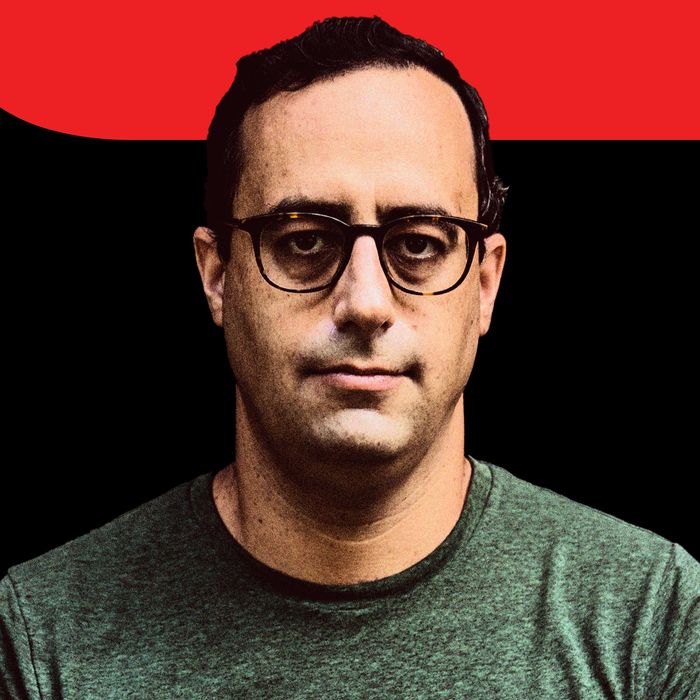
When journalist Kara Swisher wants to read something insightful about Elon Musk, she turns to Bloomberg columnist Matt Levine. So now that Musk has finally taken control of Twitter after a long legal saga, she just had to have Levine join her for the latest episode of On With Kara Swisher to talk about how it happened, how it’s going, and what on earth could possibly happen next.
In their conversation, they dive into the logistics, the drama, and the potential problems Musk may end up having with content moderation, his new workforce, the Twitter elite, and foreign governments. But they also agree that Twitter, as a product, could undoubtedly be improved, and maybe that will finally happen now that the platform has an owner who is one of its most obsessed fans. In the below excerpt, Swisher and Levine get into whether or not the Musk-modified Twitter can also make more money, and how.

On With Kara Swisher
Subscribe on:
Kara Swisher: When people are coming in to try to redo a sort of, I called it the Mount Everest of turnarounds, you have to fire people and you’ve gotta cut costs. That seems to be sort of one of the moves in the, in the quiver, but you really do have to come up with ideas. You have to keep the audience, keep advertisers, and then come up with new, fresh things to sell to them. It seems like most of the innovation and interest is somewhere else, like on TikTok — is what’s eating everybody’s lunch. Not just Twitter, but Facebook and other places.
Matt Levine: I agree with that, but it, you know, it’s sometimes hard for me to see because I’m, you know, a journalist, and like the center of gravity in the journalistic world is Twitter, and it’s clearly, you know, like, it is not where the teens are making the memes, you know. But like, it’s where Elon Musk hangs out, right? It’s where Donald Trump wishes he could hang out. Right? Uh, so I think that there is, there continues to be this idea that it’s culturally central. And the question is, can he revive that and monetize that.
And the stuff that he’s said about that is, like, “Well, we’ll charge people for subscriptions.” Okay. Like, does that sort of destroy its cultural value? Because, like, the value of Twitter is everyone can go there and make memes and sort of, uh, uh, exchange ideas. I don’t know.
Kara Swisher: Exchange ideas. I like that.
Matt Levine: Well, whatever they exchange, you know, abuse.
Kara Swisher: Abuse on each other, but it’s not, it’s still never been the majority social-media company. It’s never been the biggest. It’s important resonance with media people, politicians. Um, do you imagine what could happen where they would leave from your perspective? Or that it becomes, because sometimes parties just stop being parties. Right? Or clubs stop being clubs or whatever. We’ve seen that happen dozens of times before in the internet space for sure.
Matt Levine: Yeah, the sort of immediate worries with Elon Musk’s takeover are, you know, if you sort of buy Twitter with the goal of free speech, and then you just sort of, like, fire the entire content moderation team. And then it’s all just, you know, abuse and racism and misinformation. Then probably a lot of people are like, “I don’t want this anymore. I’m gonna go do something more pleasant with my life.” And you lose people. Um, and I think Musk’s ideas for that are kind of like: You’ll be able to like choose your filter so that you can have like the high-racism Twitter or the low-racism Twitter, somewhere in between.
Kara Swisher: I’ll take the low racism.
Matt Levine: And like, maybe that’ll work, but like it might be kind of hard to implement. Um, but the other problem is just if you like fire, if you’re firing everyone, or if you’re like, sort of like, demoralizing everyone. Then like you lose not only the, you know, people blocking Donald Trump, but also the people blocking like spambots and crypto scammers.
And then, you know, that part of why he wanted to buy Twitter is that his Twitter experience was like being constantly barraged by spambots and he wants to fix that. But he also wants to fire everyone. So it’s like, you know, he may end up making that problem worse. And then just more generally, you know, like people like, uh — there’s been very little product innovation at Twitter and, like, when you talk about TikTok, like, the thing they’re doing is more appealing to more people and particularly to younger people.
And so, like, does Twitter risk becoming like the place where old journalists go to chat with each other? And how valuable is that?
Kara Swisher: No, not at all.
So let’s talk about subscriptions. Very hard to do. Very. They tried Twitter Blue, which was a shitty product, as I tried it. It didn’t give me anything more.
I find value in Prime. I find value in Netflix. I find value in Disney +. If you have any children, you have to watch Frozen 112 times a week. Um, talk to me about what would be valuable here. What could they — could they charge big? I mean, for me, Twitter is a marketing opportunity for the most part and a bit of an addiction around news.
Matt Levine: Yeah, I mean if you have like a hundred Twitter followers, Twitter is a way to consume some information that you probably wouldn’t pay a dollar a month for. But if you have a million Twitter followers, Twitter is part of your business, right? Like you’re in, you’re in some sort of business of promoting yourself and you need Twitter. And if you charge those people, you know, 10 bucks a month. Like that would be an easily, you know, written-off expense. That’s the thing that people have suggested over the years. Um, one thing he wants to do is just build more product. Like, just make more stuff that you can do to make a Twitter experience better.
And like presumably you could charge for some of that. Like, you know, you could charge people to have the low-racism Twitter, or you could charge ’em to have the high racism on Twitter. I don’t know. I don’t know which one is more valuable to more people, but like …
Kara Swisher: Probably the high-racism Twitter.
Matt Levine: Yeah, right. So you can build more filters and more ways to customize your Twitter experience and then you can pay a little bit for a more pleasant Twitter experience. And, like, Twitter is very valuable because there are a lot of casual users who can, like, see the memes that you tweet and like in some, like, low-touch way, be fans of yours. And those people shouldn’t pay for Twitter because they’re very casual users.
But there are a lot of, like, very deeply addicted — like if you charged Elon, leaving aside that he bought the company, if like Twitter had charged Elon Musk a thousand dollars a month last year to use Twitter, he would’ve paid it, right? Like he’s rich and he loves Twitter.
Kara Swisher: Yep. Yes.
Matt Levine: Something is there.
This interview has been edited for length and clarity.
On With Kara Swisher is produced by Nayeema Raza, Blakeney Schick, Cristian Castro Rossel, and Rafaela Siewert, with mixing by Fernando Arruda, engineering by Christopher Shurtleff, and theme music by Trackademics. New episodes will drop every Monday and Thursday. Follow the show on Apple Podcasts, Spotify, or wherever you get your podcasts.
More From 'on with kara swisher'
- Ron Klain Still Thinks Biden Got a Raw Deal
- Gretchen Whitmer on Why She’s Still Confident in Biden
- AOC on Gaza, Insults, AI, and Whether Trump Will Lock Her Up





























